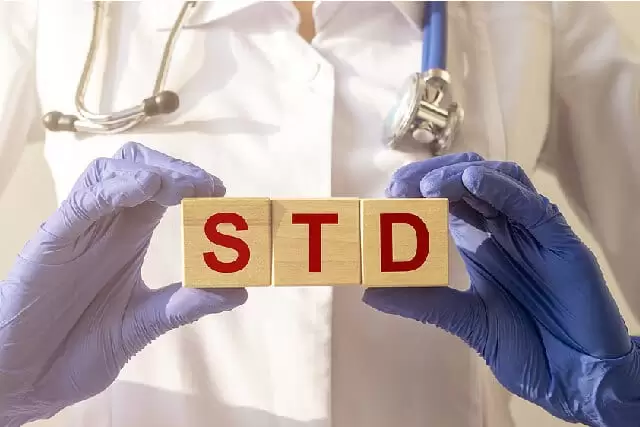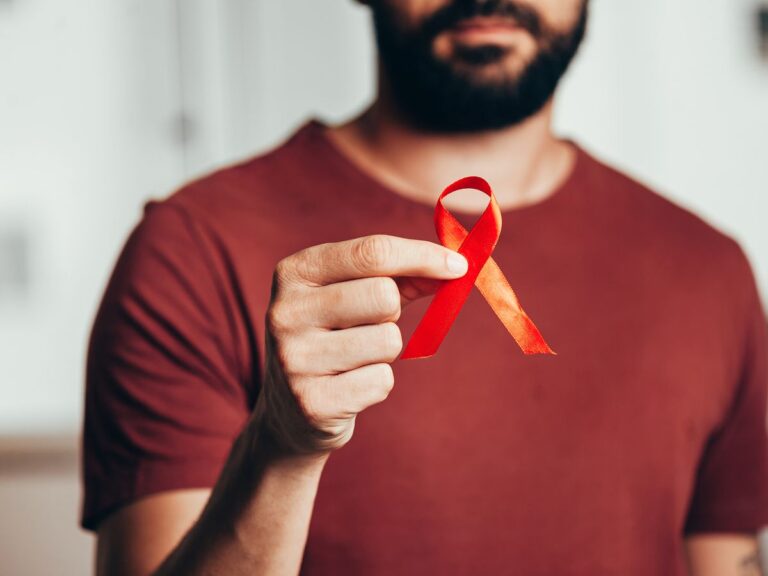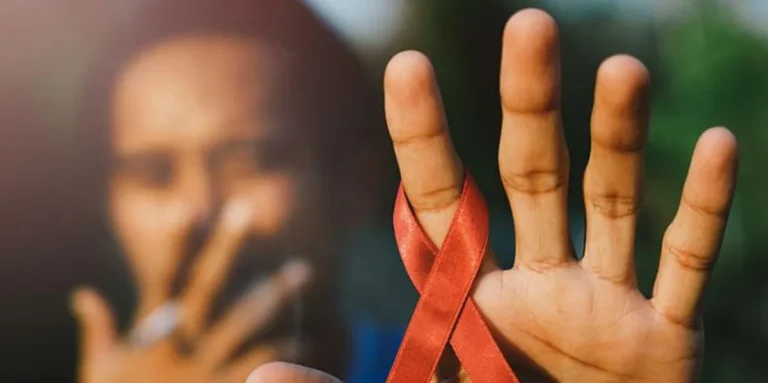Can You Catch HIV from Someone Giving You Oral?
HIV (Human Immunodeficiency Virus) remains a major health concern globally, and understanding how it is transmitted is crucial in reducing the spread of the virus. HIV can be transmitted through several pathways, some more commonly discussed than others. Here’s a brief overview of how HIV can spread:
- Unprotected Sexual Contact: Vaginal, anal, and oral sex with an HIV-positive person without protection are the primary modes of HIV transmission.
- Sharing Needles: Sharing needles or syringes with someone who is HIV-positive is another high-risk activity.
- From Mother to Child: HIV can be passed from an infected mother to her child during pregnancy, childbirth, or breastfeeding, although with proper medical intervention, the risk can be minimized.
- Blood Transfusions and Organ Transplants: While rare due to strict screening processes, HIV can also be transmitted through contaminated blood or organs.
- Occupational Exposure: Healthcare workers who come into contact with HIV-infected blood may be at risk unless proper protective measures are taken.
Can You Catch HIV from Oral Sex?
A commonly asked question is whether oral sex can lead to HIV transmission. To answer this, it is important to explore the different types of oral sex and the factors that affect HIV transmission risk.
Receptive Oral Sex (Receiving Oral)
Receptive oral sex refers to the act of receiving oral stimulation from a partner. The risk of acquiring HIV from receptive oral sex is low but not zero. Several factors influence the likelihood of transmission, including:
- Oral Health: The presence of oral health issues such as bleeding gums, open sores, or other oral infections can increase the risk. If the person performing oral sex has cuts or ulcers in their mouth, the virus can more easily enter the bloodstream.
- Ejaculation in the Mouth: Ejaculation in the mouth during oral sex increases the risk of HIV transmission. Semen contains high concentrations of HIV, and if the person performing oral sex has an open sore or bleeding gums, the virus can more easily enter the bloodstream.
- Viral Load of the HIV-Positive Partner: The viral load (the amount of HIV in the blood) is an important factor in transmission. Individuals with a high viral load are more infectious. In contrast, individuals on antiretroviral therapy (ART) with an undetectable viral load have a much lower risk of transmitting the virus, although the risk is not entirely eliminated.
Insertive Oral Sex (Giving Oral)
When a person gives oral sex to an HIV-positive partner, the risk of transmission is generally lower than when receiving oral sex. However, this risk is not zero. The same factors that influence receptive oral sex also apply, such as the presence of oral health issues, ejaculation, and the viral load of the HIV-positive partner.
Can HIV Be Transmitted Through Oral Sex Even if the HIV-Positive Partner Has an Undetectable Viral Load?
It is crucial to address the question of whether HIV can be transmitted from someone with an undetectable viral load during oral sex. While the risk is significantly lower when an HIV-positive person has an undetectable viral load (often referred to as “undetectable = untransmittable” or U=U), it is still theoretically possible, though extremely rare.
For people living with HIV who are on effective ART and have maintained an undetectable viral load for at least six months, the risk of transmission through oral sex is minimal. However, for maximum protection, it’s still recommended to use barrier methods.
Reducing the Risk of HIV from Oral Sex
To protect yourself and others, several preventative measures can be taken:
Use Protection
Using a barrier method such as condoms or dental dams during oral sex can drastically reduce the risk of HIV transmission. These barriers provide a physical layer of protection, preventing direct contact with bodily fluids like semen or vaginal fluids.
Maintain Good Oral Health
Keeping your mouth healthy is key. Regular dental checkups, brushing your teeth, and treating any oral infections or gum disease can help reduce the risk of HIV transmission during oral sex. If you have open sores or cuts in your mouth, avoid engaging in oral sex until they have healed.
Communicate Openly About HIV Status
Having open and honest conversations about HIV status with your partner can help reduce the risk of transmission. People living with HIV who are on ART and have an undetectable viral load can reduce the risk of transmission, but it’s important to confirm this with regular testing.
Regular Testing for HIV
Getting tested regularly for HIV is one of the most effective ways to protect yourself and others. Regular testing allows for early detection, which is crucial for initiating treatment. Testing also allows individuals to know their HIV status and take necessary precautions to prevent further transmission.
The Importance of Testing in Jacksonville, FL
Accessible Testing Services
Free HIV testing services, such as those provided by Hope Across The Globe in Jacksonville, FL, play an important role in ensuring that everyone can access testing without fear of judgment or financial barriers. These services make testing more accessible, particularly for underserved communities, offering confidential results and counseling.
Early Detection and Prevention
Early detection of HIV is critical for managing the virus and preventing its spread. When HIV is caught early, treatment options can significantly improve health outcomes, and individuals are less likely to transmit the virus to others. Free HIV testing services offer peace of mind and allow individuals to make informed decisions about their health.
HIV Myths and Misconceptions
There are many myths and misconceptions about HIV and oral sex. Let’s explore some of the most common ones:
Myth 1: Oral Sex Is Completely Safe
Oral sex is often perceived as completely safe, but this is not the case. While the risk of transmission is lower compared to vaginal or anal sex, it is still possible to contract HIV, especially if the person performing oral sex has oral health issues or if ejaculation occurs in the mouth.
Myth 2: HIV Can Be Transmitted through Saliva
HIV is not transmitted through saliva. Saliva contains enzymes that inhibit the virus’s ability to infect, making saliva an ineffective medium for transmission. However, if there are open sores or cuts in the mouth, the virus can enter the bloodstream and cause infection.
Myth 3: You Can’t Get HIV if Your Partner Is Undetectable
While a person with an undetectable viral load has a much lower risk of transmitting HIV, it is not completely eliminated. Using protection and getting regular tests remain essential to prevent the transmission of the virus.
Myth 4: Oral Sex Always Leads to HIV Transmission
While the risk of transmission through oral sex is low, it is not zero. The presence of risk factors such as open sores, bleeding gums, or high viral load increases the risk, but with preventive measures, the risk can be minimized.
Myth 5: You Can Get HIV from Kissing
HIV is not transmitted through kissing, even if there is an exchange of saliva. The virus does not survive well in saliva, and the amount of virus present in saliva is usually insufficient to cause infection.
Promoting Safe Practices and Knowledge
HIV prevention goes beyond just understanding the science. It involves fostering a culture of safe sexual practices, knowledge, and consent. Here’s how:
Safe Practices
Using barrier methods, regular testing, and having open conversations about HIV status with sexual partners are critical elements of safe sex. Regardless of the type of sexual activity, these practices can help reduce the risk of HIV transmission and the spread of other sexually transmitted infections (STIs).
Knowledge and Consent
Individuals need to be well-informed about HIV and other STIs to make informed decisions regarding their sexual health. Consent, based on accurate knowledge, is crucial for safe and respectful sexual encounters.
Reducing Stigma
HIV-related stigma can discourage individuals from getting tested and seeking treatment. By reducing stigma and creating an environment where people feel comfortable discussing their HIV status, we can foster better community health.
Conclusion
The question, “Can you catch HIV from someone giving you oral sex?” has a nuanced answer. While the risk is low, it is not nonexistent. Factors such as oral health, viral load, and the presence of ejaculation can influence the likelihood of HIV transmission. By using protection, maintaining good oral hygiene, and engaging in open conversations with your partner about HIV status, you can significantly reduce the risk.
Free HIV testing services in Jacksonville, FL, such as those offered by Hope Across The Globe, are essential in promoting HIV awareness and prevention. By getting tested regularly, you not only protect your health but also contribute to reducing the spread of HIV in your community.
Together, through awareness, knowledge, and safe practices, we can work towards a future where HIV transmission is significantly reduced, and individuals living with HIV can thrive.
FAQs About HIV and Oral Sex
Q: Can you get HIV from oral sex? Yes, while the risk is low, HIV can be transmitted through oral sex, particularly if there are open sores in the mouth or the HIV-positive partner has a high viral load.
Q: Can a man get HIV from receiving oral sex? The risk of receiving oral sex and getting HIV is lower, but it is not zero. Factors such as oral health and ejaculation can influence transmission risk.
Q: Does having an undetectable viral load eliminate the risk of HIV transmission during oral sex? While an undetectable viral load greatly reduces the risk, it does not completely eliminate it. It’s still recommended to use protection and get tested regularly.
Q: How can I protect myself from HIV during oral sex? Use a barrier method such as condoms or dental dams during oral sex. Also, maintain good oral health and have open conversations with your partner about HIV status.
Q: Where can I get a test in Jacksonville, FL? Many organizations, including Hope Across The Globe, offer free and confidential HIV testing services in Jacksonville, FL. Regular testing is an essential part of maintaining your sexual health.
Q: Is oral sex safer than other forms of sex when it comes to HIV? Oral sex is generally safer than vaginal or anal sex, but it is still possible to contract HIV, especially if certain risk factors are present. Using protection and getting tested regularly can help reduce the risk.
Related Tag: HIV Clinic Jacksonville FL






